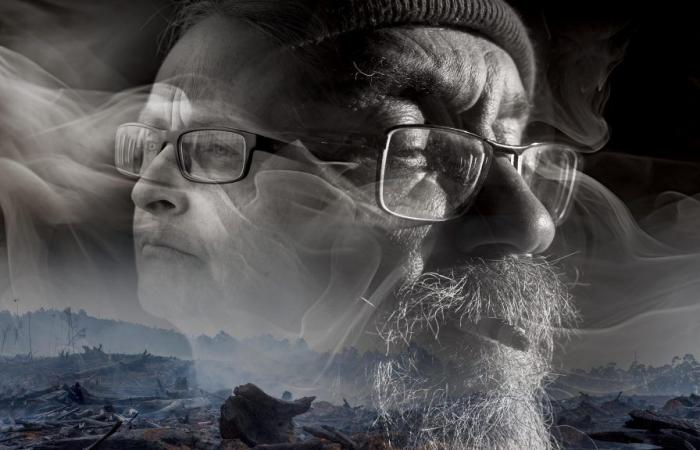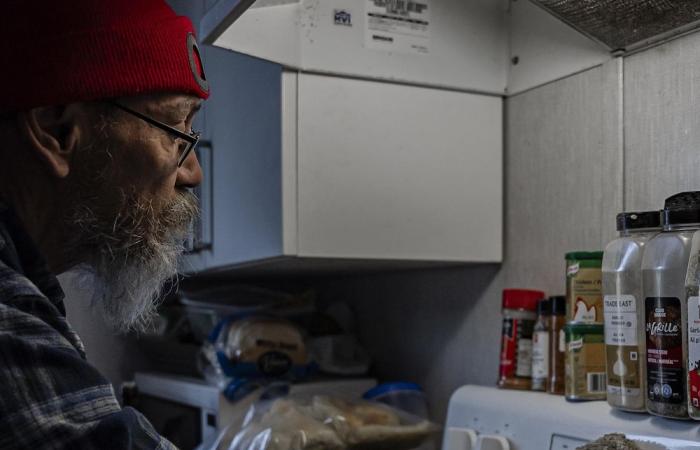Each of us has the capacity to recover from a traumatic event, Patrick firmly believes, but what about when another disaster strikes? How many hard knocks can you overcome?
Five months after the Lytton fire, atmospheric rivers swept across southern British Columbia, creating catastrophic flooding. The village has not escaped.
In the Michells’ trailer, it was -32°C when the water froze in the septic tank. At 4 a.m., Patrick broke down. : \”Are you okay?\” I said to him: \”I need to let go.\” Sometimes you need to cry.”,”text”:”My daughter asked me: \”Are you okay?\” I told her :\”I need to let go.\”Sometimes you need to cry.”}}”>My daughter asked me, “Are you okay?” I told him, “I need to let go.” Sometimes you need to cry.
Be a man. Swallow your emotions. Do not Cry.
Stigma and shame still prevent survivors from talking about their trauma, or from getting help, deplores the member of the Nlaka’pamux nation. However, we thus take the risk of making these internal infernos even bigger, more explosive.
: \”Indian up.\” […] You know what we did? We started drinking to cover up the pain. We started drinking to forget, and in the drinking, we became violent.”,”text”:”At the time, we couldn’t talk about what was happening in residential schools. They would tell us, \”Indian up.\” […] Do you know what we did? We started drinking to mask this pain. We started drinking to forget, and in drinking, we became violent.”}}”>At the time, we couldn’t talk about what was happening in residential schools. We were told: “Indian up.” […] You know what we did? We started drinking to mask that pain. We started drinking to forget, and in the drinking, we became violent.
For her daughter Serena, these floods were the last straw: she made the choice to leave Lytton, she no longer felt safe there. I lost my daughter. It broke her. Has she gotten over it since? It works. She came back
says Patrick, adding that she now suffers from a form of agoraphobia.
In Fort McMurray, residents’ mental health also appeared to have deteriorated in the years following the fire. The oil sands capital also experienced floods in 2017, then the COVID-19 pandemic, as explained by Vincent Agyapong, director of the Department of Psychiatry at Dalhousie University, himself a survivor of the Fort fire. McMurray.
After a study (New window) (in English) in which he participated, conducted five years after the fire in Fort McMurray, the percentage of people suffering from moderate to severe depression and possible post-traumatic stress symptoms among those surveyed was much more marked than a year and a half after the disaster in other study samples.
Has enough long-term assistance been provided to these communities? Vincent Agyapong wonders when he sees the number of people who are still suffering years after the tragedy. Early interventions are essential to tackle these problems at the root and prevent them from getting worse, but there is also a need for continuously accessible resources to deal with these accumulations.
With climate change, we will have more wildfires, more floods and other extreme events. More people will be affected. There will be more pressure on the health system
he adds.
We need to invest more to prepare for it and be able to intervene with thousands of people at the same time, he specifies, referring to the scale of disasters in recent years.







